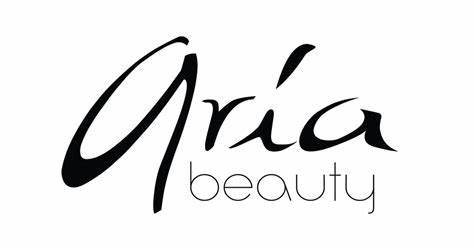Healthy, vibrant hair is a universal beauty aspiration. It's a reflection of good health and meticulous care, making it essential to understand how to maintain and enhance your hair's natural beauty. In this comprehensive guide, we will explore various tips, tricks, and techniques to achieve and maintain lustrous, healthy hair. From dietary considerations to hair care routines, this article will provide a wealth of information to help you keep your hair looking its best.
Introduction to Hair Health

Hair health is influenced by a myriad of factors, including genetics, diet, lifestyle, and hair care practices. Understanding the science behind hair growth and maintenance can empower you to make informed decisions that promote healthier, stronger hair. This guide will delve into the various aspects of hair health, offering practical advice and expert tips to help you achieve the hair of your dreams.
The Science of Hair Growth
Hair growth occurs in cycles and is influenced by a range of biological processes. Each strand of hair grows from a follicle embedded in the scalp. The growth cycle consists of three main phases:
- Anagen (Growth Phase): This is the active growth phase, where hair grows approximately half an inch per month. This phase can last anywhere from two to seven years.

- Catagen (Transitional Phase): This short phase lasts about two to three weeks, during which hair growth slows, and the follicle begins to shrink.
- Telogen (Resting Phase): Lasting about three months, this phase is when hair growth stops, and old hair is shed to make way for new growth.
Understanding this cycle can help you develop realistic expectations and effective strategies for hair growth and maintenance.
Dietary Considerations for Healthy Hair
Your diet plays a crucial role in the health of your hair. Nutrients from the food you eat provide the building blocks for strong, healthy hair. Here are some essential nutrients for hair health:
- Protein: Hair is primarily composed of keratin, a type of protein. Ensure your diet includes adequate protein from sources like lean meats, eggs, dairy, legumes, and nuts.

- Vitamins: Vitamins A, C, D, and E are vital for hair health. They promote scalp health, improve hair strength, and enhance hair growth. Include a variety of fruits, vegetables, and fortified foods in your diet.
- Minerals: Iron, zinc, and selenium are essential minerals that support hair health. Incorporate foods like leafy greens, beans, and seafood to meet your mineral needs.

- Omega-3 Fatty Acids: These healthy fats found in fish, flaxseeds, and walnuts help nourish hair follicles and promote shiny hair.
Hair Care Routine Essentials
A consistent hair care routine tailored to your hair type and needs is fundamental to maintaining healthy hair. Here are some key steps to include in your routine:
- Cleansing: Use a gentle shampoo to cleanse your scalp and hair without stripping natural oils. Avoid harsh sulfates that can cause dryness.

- Conditioning: Condition your hair after every wash to restore moisture and improve manageability. Focus on the ends of your hair to prevent split ends and breakage.
- Deep Conditioning: Treat your hair to a deep conditioning mask or treatment once a week to provide extra nourishment and hydration.

- Scalp Care: A healthy scalp is the foundation for healthy hair. Regularly exfoliate your scalp to remove dead skin cells and promote circulation.
- Heat Protection: Use heat styling tools sparingly and always apply a heat protectant spray to minimize damage.

Common Hair Problems and Solutions
- Dryness: Combat dryness by using hydrating shampoos and conditioners, and avoid over-washing your hair. Incorporate regular deep conditioning treatments.

- Frizz: Use anti-frizz serums and avoid towel-drying your hair vigorously. Opt for a microfiber towel or a cotton t-shirt to dry your hair gently.

- Split Ends: Regular trims every six to eight weeks can help prevent split ends. Use leave-in conditioners and avoid excessive heat styling.

- Hair Loss: If you experience significant hair loss, consult a healthcare professional to identify any underlying conditions. Ensure your diet is rich in essential nutrients and avoid tight hairstyles that can cause tension on the scalp.
Natural Remedies for Hair Health
Incorporating natural remedies into your hair care routine can provide additional benefits. Here are some popular natural treatments:
- Coconut Oil: Known for its moisturizing properties, coconut oil can help strengthen hair and reduce protein loss. Apply it as a pre-wash treatment or leave-in conditioner.

- Aloe Vera: Aloe vera soothes the scalp, reduces dandruff, and conditions hair. Apply fresh aloe vera gel directly to the scalp and hair.

- Apple Cider Vinegar: ACV can balance the scalp's pH and add shine to your hair. Dilute it with water and use it as a final rinse after shampooing.
- Honey: Honey is a natural humectant that retains moisture. Mix it with your conditioner or use it as a hair mask for added hydration.
Professional Treatments and Tools
Sometimes, professional treatments can provide the extra care your hair needs. Consider these options:
- Keratin Treatments: These treatments smooth and strengthen hair, reducing frizz and improving manageability.

- Scalp Treatments: Professional scalp treatments can help address issues like dandruff and dryness, promoting a healthier environment for hair growth.

- Quality Tools: Invest in high-quality styling tools like ceramic or tourmaline flat irons and ionic hair dryers to minimize heat damage.
Conclusion
Healthy, lustrous hair is achievable with the right knowledge and care. By understanding the science of hair growth, adopting a nutritious diet, maintaining a consistent hair care routine, and addressing common hair problems, you can enhance the beauty and health of your hair. Incorporate natural remedies and consider professional treatments to give your hair the extra boost it needs. With these tips and tricks, you'll be well on your way to achieving the vibrant, healthy hair you've always desired.

